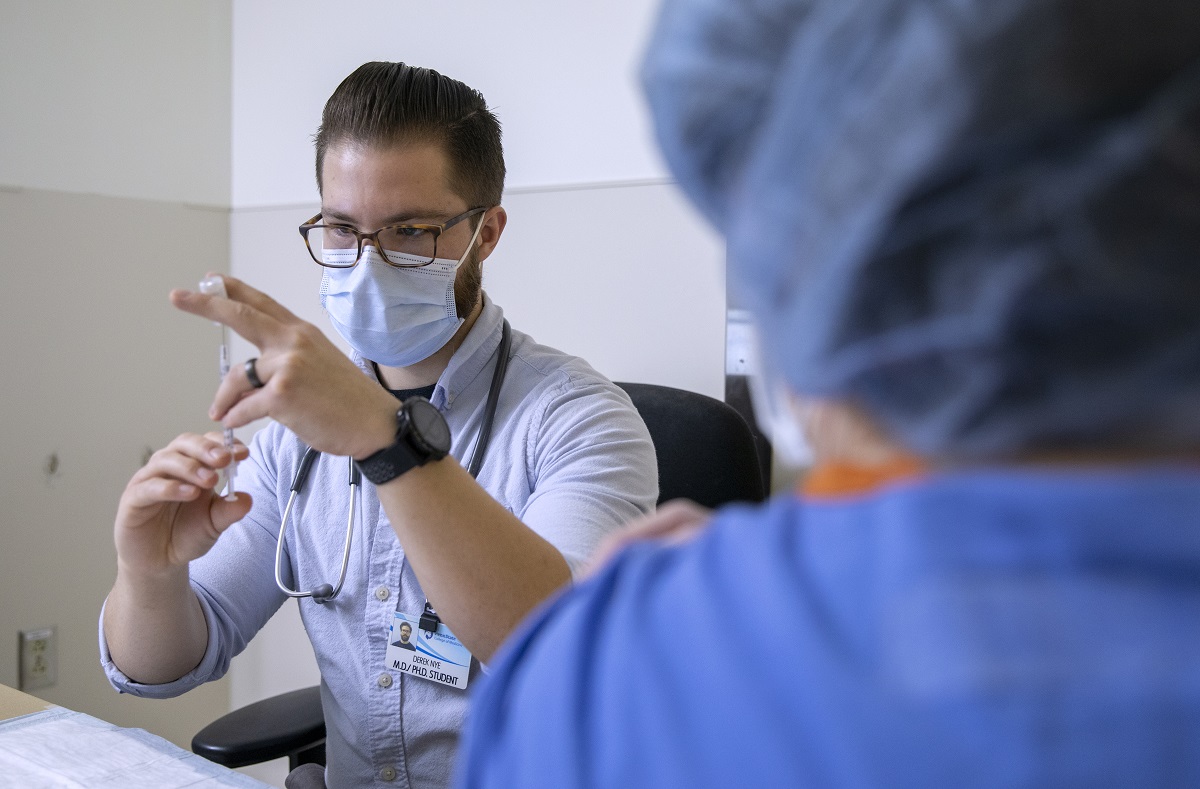College of Medicine students receive college credits, lifetime experience during pandemic

When COVID-19 first appeared in Pennsylvania, Dallas Hamlin worried his medical school education would be stifled.
Instead, the fourth-year Penn State College of Medicine medical student says he has received an education of a lifetime.
Since last spring, 408 medical and physician assistant students have signed up for more than 16 task forces – each with a critical function to support Penn State Health’s response to the COVID-19 pandemic. Unlike some medical schools that suspended classes or only held them remotely, the College of Medicine decided to allow students to safely work on projects related to patient care and receive course credits as part of their learning experience.
Students see the experience as an extraordinary learning moment. Hamlin said they learned firsthand what they had studied in the classroom about team functions, the importance of health care collaboration and evidence-based education. They also saw the emotional side of battling a fast-spreading illness.
“If we can contribute to fighting this disease and ease some people’s pain, it’s all worth it,” said Hamlin.
Dr. Jed Gonzalo, professor of medicine and associate dean of health systems science education, said when the new coronavirus first appeared, Penn State Health had to move quickly and meet many demands.
“We were seeing all of these needs and thinking, ‘Who is going to do this?’” he said. “At the same time we had these incredible students, and we thought, ‘They can be part of our effort.’”
Within two days of Penn State Health mobilizing to care for patients with COVID-19 a curriculum took shape that would allow students to not only learn and earn credits but also help their community.
Starting in December, College of Medicine students began working with COVID-19 task forces again and earning credits. Some are involved with contact tracing and community education about the vaccine, while others are administering the vaccine to Penn State Health and College of Medicine staff.
Hamlin said the experience allows him to be involved in administrative functions that would not normally happen until years into his career.
He has led a group of students who are transcribing patient notes for physicians. Physicians say this has been immensely helpful to them because they are caring for an increased number of patients and must remove layers of personal protective equipment to write notes. Their workdays lengthened by as much as three hours in some cases before student scribes began helping them.
As for Gonzalo, the lessons he is taking away are countless. He calls his time working with students during the pandemic “one of the most remarkable things I have experienced in my career.”
He points to how hardworking the students have been throughout the health crisis, how nimble the College of Medicine has been to create the COVID-19 electives program and how involved faculty became to make the program a success.
“We should all be very proud of our students,” he said. “As the next generation of physicians, they have been a real inspiration.”
If you're having trouble accessing this content, or would like it in another format, please email Penn State Health Marketing & Communications.
